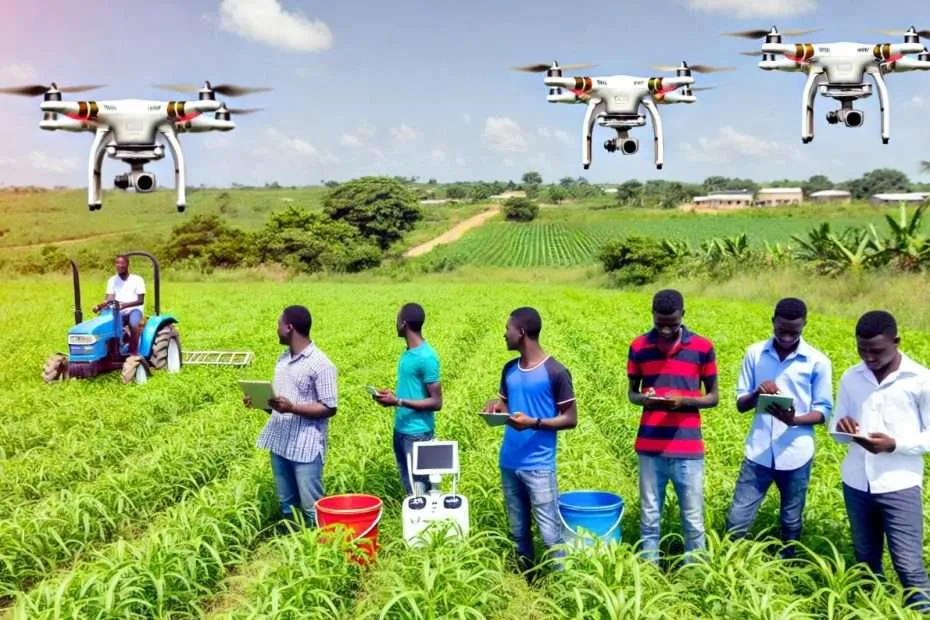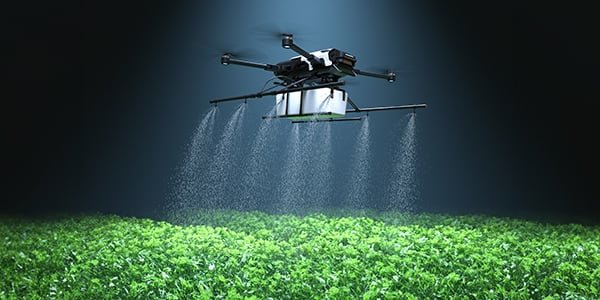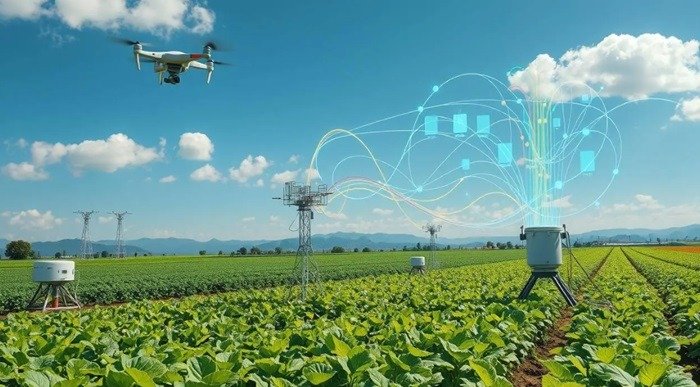News
Ghana Targets Smart Farming with AI to Boost Productivity and Global Exports
Published
9 months agoon
By
M N Ridwan
Ghana is positioning itself as a potential leader in the global food production landscape by harnessing the power of artificial intelligence (AI) to revolutionize its agricultural sector.
With over half of the country’s workforce engaged in farming—a sector contributing 20% to its GDP—the push towards AI-powered agriculture could drastically reshape the nation’s economic future, experts say.
In an exclusive interview with The High Street Journal, IT strategist and AI specialist Precious Darkwa discussed the transformative potential of AI in Ghana’s agriculture sector.
Darkwa, who advises agritech firms across West Africa, highlighted the role of machine learning algorithms in optimizing key aspects of farming, including soil health, irrigation, and pest management.
Early-stage projects already demonstrate the promising impact of AI, with some reporting yield increases of up to 35%.
This comes at a crucial time for Ghana, where post-harvest losses account for over 30% of crops annually, according to the Food and Agriculture Organization (FAO).
Darkwa painted a picture of a more efficient and productive agricultural future: “Imagine drones mapping crop stress in real-time or chatbots delivering planting advice to remote farmers via basic phones.
These aren’t futuristic concepts—they’re tools already reshaping farms in Nigeria and Kenya. Ghana must accelerate adoption to keep pace.”

However, significant barriers remain in Ghana’s AI agricultural transformation. Only 15% of Ghanaian farmers have access to reliable internet, according to the World Bank, which makes the widespread adoption of AI challenging.
Additionally, fragmented land ownership further complicates the process of data collection for AI systems.
Darkwa emphasized the need for public-private partnerships to build the necessary infrastructure, such as rural broadband and sensor networks.
He pointed to India’s Digital Agriculture Mission as a successful model for what could be replicated in Ghana.
The government’s recent $50 million pledge towards agricultural tech hubs is a positive step, but experts argue that more strategic investment is needed.
Darkwa explained, “AI isn’t about replacing tractors with robots. It’s about empowering farmers to make informed decisions about what crops to plant, when to harvest, and where to sell—all from a simple feature phone.”
The push for AI in agriculture also aligns with the African Union’s 2023 AI Continental Strategy, which aims to reduce agricultural imports by 25% by 2035 through smart farming.
This ambition is particularly timely given the growing threat of climate-driven food insecurity, with Ghana’s 2024 cocoa season suffering a 40% drop in output due to illegal mining and droughts.

Startups like AgriTech Analytics are already leveraging satellite imagery to monitor deforestation, while blockchain platforms are being used to trace produce from farm to port.
However, critics warn that the focus on tech-driven solutions may widen existing inequalities, especially for smallholder farmers.
Darkwa agreed, advocating for localized AI training programs and subsidies for devices like the Internet of Things (IoT) tools to ensure small farmers aren’t left behind in the push for smart farming.
With the West Africa Agritech Summit set to take place in October, stakeholders are eager to emphasize inclusive growth in the sector.
As Darkwa put it, “The goal isn’t just exports. It’s ensuring every farmer—whether they’re cultivating two acres or two hundred—can harvest prosperity.”
With global food demand expected to rise by 60% by 2050, Ghana’s bold AI ambitions could soon help it become a key player in the global food supply chain.







